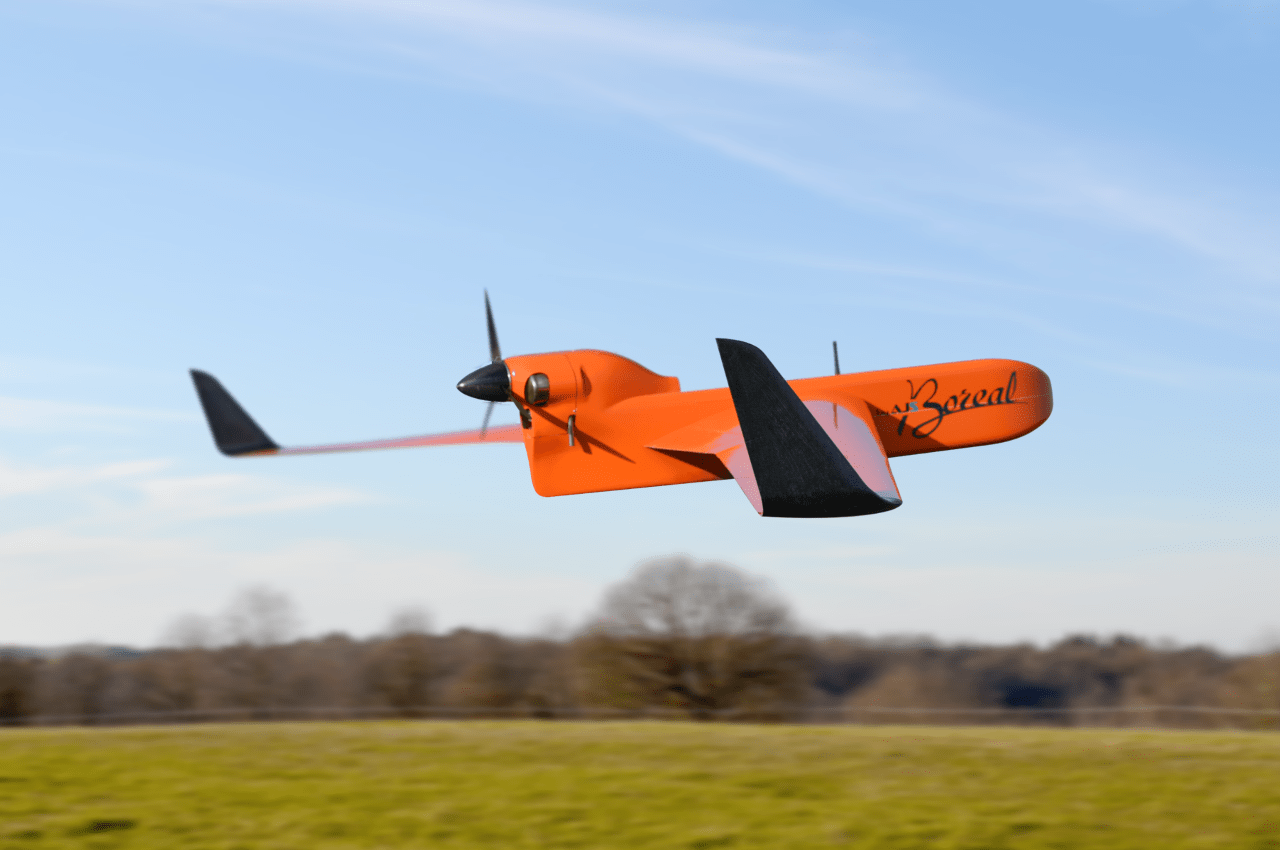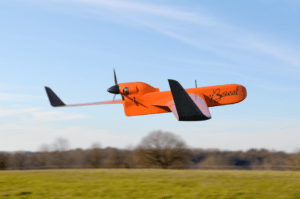The European Skyopener project, co-financed by the European Global Navigation Satellite Systems Agency (GSA), the European Commission and by the Horizon 2020 program aims to develop the civilian use of drones.
Today, the civil exploitation of drones is subject to strict regulations, a fortiori with regard to out-of-sight operations. Integration into air traffic is also a major challenge because there is a growing demand for the use of drones for civil applications, in particular for long-distance applications.
The European Skyopener project aims to propose solutions to reduce the risks associated with the use of drones in a non-segregated environment. By its size and its mass but also thanks to its performance in terms of payload, the BOREAL platform provided within the framework of this project enabled the partners to carry two different payloads to demonstrate the feasibility of such a challenge: a lidar and a visible/infrared camera assembly. A fixed-wing drone, it is able to cover long distances, with a flight autonomy of 10 hours.
For this, the use of the GALILEO and EGNOS systems is central to this project, which thus makes it possible to significantly improve the integrity and precision of the position of the aircraft. Reducing the risks will induce a reduction in the costs linked to insurance premiums. The reduction of air and ground risks linked to the use of drones could also allow the authorization of operations in scenarios that have been prohibited up to now. These two factors will offer market prospects for civil applications.
The European Global Navigation Satellite Systems Agency (GSA) presents the Skyopener project and the BOREAL drone in more detail in an article dated July 26, 2019.
Press coverage :
Unmanned Systems Technology, July 31, 2019
Inside Unmanned Systems, July 29, 2019
Geospatial Solutions, July 29, 2019
UAS Vision, July 29, 2019
GPS World, July 29, 2019
Inside GNSS, July 29, 2019
French version:
The drone BOREAL is used in the European project Skyopener
The European project Skyopener, co-funded by the European Global Navigation Satellite Systems Agency (GSA), the European Commission and the Horizon 2020 program aims to develop the civil use of RPAS.
Today, the civil drone operations are subject to strict regulations, especially with regard to out-of-sight operations. The insertion into air traffic is also a challenge because there is a growing demand for drones use in civilian applications, especially for long-distance applications. The European Skyopener project aims to propose solutions to reduce risks associated with drone operations in a non-segregated environment.
By its size and mass but also thanks to its transport performance, the BOREAL platform allowed the partners to carry two different payloads to demonstrate the feasibility of such a challenge: a lidar and a visible / infra-red camera set. Fixed-wing drone, it is able to cross long distances, with a flight autonomy of 10 hours.
For this, the use of GALILEO and EGNOS systems is central in this project, which allows to significantly improve the integrity and accuracy of the aircraft position. Reducing risks will reduce insurance premium costs. The reduction of the aerial and terrestrial risks related to drones use could also allow the authorization of operations in scenarios until now prohibited. Both of these factors will provide market opportunities for civil applications.
The European Global Navigation Satellite Systems Agency (GSA) presents in more detail the project Skyopener and the BOREAL drone in an article dated July 26, 2019.




